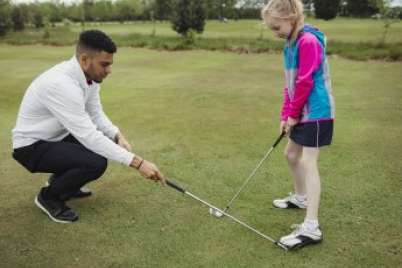
Why do some kids quit sport? Alberta Lacrosse asked them
Has your child ever played an organized sport, and wanted to drop out?
Every year in Canada, many kids drop out of sport programs or decide not to return for one reason or another. The problem is, most community and provincial sport associations rarely ask why kids leave.
Anecdotally, we might hear that one child or another was unhappy with the coaching, the culture on the team, the general level of organization, or some other factor. However, hearsay and anecdotes don’t provide a good basis for changing or improving programs, and it doesn’t do much to keep kids playing.
In 2016, the Alberta Lacrosse Association (ALA) decided they wanted to go beyond the guessing game. To figure out the reasons why kids were dropping out of lacrosse, they created a province-wide survey to ask them why. The answers have been enlightening.
Coaching, sportsmanship, and club culture
As with any sport, some kids leave lacrosse due to injury, cost, or simply moving away. However, approximately 16 percent of those who quit lacrosse in Alberta in 2016 said they were dissatisfied with the standard of coaching, and roughly 10 percent said they were unhappy with club politics, program governance, or poor sportsmanship displayed by coaches, parents, and players. A few comments tell the story:
- “I found the coaching to be extremely based on favourites.”
- “Younger group was given coaches that weren’t properly trained/supervised and were not at all engaging.”
- “We struggled with the attitudes of some coaches and parents.”
- “Worst experience ever in sport. Coach was not professional and did not set a good example to the boys. Parents were incredibly rude.”
While these complaints did not describe the experience of the majority of players and parents, they nonetheless made up a sizeable minority, and ALA wanted to do something about it.
“A lot of sports think they know why people are quitting,” says Lisa Grant, the ALA executive director, “but until you see it in black and white from your members, you don’t really know.”
Suggestions for improvement
When it came to providing suggestions for improving coaching and the culture of the sport, parents and players who completed the survey also had clear ideas about what needed to change.
Apart from ensuring the coaches were experienced and knew the sport, many suggestions revolved around fairness and equity for participants. This included having equal playing time, equal training, and tiered teams to accommodate different levels of skill and interest.
Changes are coming
For the ALA, the player retention survey has helped them to adjust course. They have used the survey data to shape their new strategic plan for lacrosse in Alberta, and they are introducing things such as the Respect the Ref program to address some of the key concerns.
It includes posters in arenas and buttons for parents and spectators, along with recommendations that every team assign a parent “monitor” to speak with other parents on the team if they start to lose composure.
As the ALA strategic plan is implemented through 2017, it will be interesting to see how the new changes impact player retention. Depending on the outcome, other associations in Canada could also decide that they want to adopt exit surveys as a “wise practice” in their sports.






The main problem I find in a related sport (hockey) is that too many players are pushed to play travel rather than in-house exclusively at their neighbourhood or local arena. So there just are not enough local leagues for regular kids who just want to be on the ice twice a week playing recreational hockey. Therefore even to play just recreational hockey required travel beyond just the local rink otherwise not enough players in the recreational division if the entire program is at one arena.
I’m glad a league is taking drops out seriously. However drop outs are an example of a bigger problem. The underlaying issue is that youth leagues, in particular rec youth division relay on “parent /volunteer coaches” to teach technical and tactical skills of the game. A more progressive step ( beyond having qualified coaches) would be to have parents no where near the fields. This would take away parents shouting crap that undermines coaching and skill development. Kids do not need the pressure of having parents comment on every play or decision. In the long term how can we expect to national level players to be developed who are taught by people with very limited knowledge of the game. If we want quality player we must put ouf best and brightest with U4-12